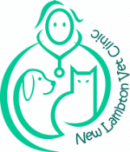I had a more senior kelpie come to see me last week for an annual check-up – very sprightly, well fed and well loved, my favourite sort of consultation. During his examination I happened to remark that his lens were quite sclerotic and that he probably was not seeing very well. We commonly call this condition “cataracts” in old dogs although more correctly it is a benign ageing change of the lens called nuclear sclerosis. His owner had not realised and was quite distressed that his old boy was going blind. So we talked about the process of ageing in the eyes – how the lenses inside the eyes, through the natural process of ageing, become less elastic and their fibres less well aligned. At 14, the possibility of Rufus visiting an ophthalmic surgeon in Sydney for surgical removal of his lenses was not really an option. But the more we talked the more we realised that for Rufus sight was way down on the list as a sense. Rufus really isn’t hearing very well these days either, but he knows exactly when Dad is home, if someone else is there, what’s for dinner, when dinner is going to be, and whether the cat is sleeping in his bed. He doesn’t watch TV, play on the internet or even read the newspaper. But…he smells. His sense of smell seems to be as acute as it was when he was a pup. Dog’s noses are amazing, exponentially more powerful than ours. A full 1/3 of their brains are devoted to processing smells, and they can smell in stereo – smelling one odour through one nostril and another through the other. When they breathe out, exhaled air leaves via the slits in the sides of their nostrils, so it doesn’t mix with the new smells being breathed in. I often see old dogs who can hardly see or hear, but if, as is almost always the case, their sense of smell is unimpaired, they are still very well placed to enjoy a happy rewarding old age
